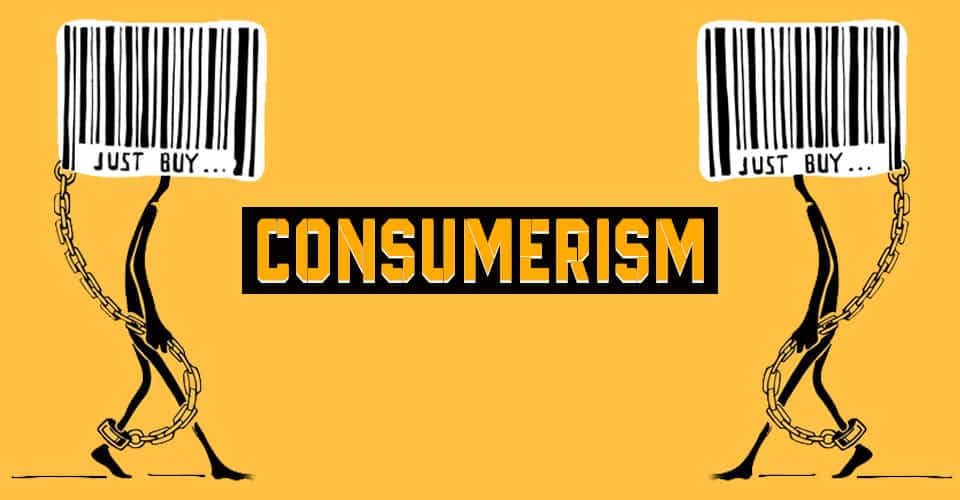By Evangelia Petsa,
In the modern era, the globalization of the market makes advertising a key feature of modern societies. The ever-increasing number of consumer goods and the competition between companies make it a necessary condition for the organization of social life. Advertising as a means of persuasion is mainly aimed at young people, who are distinguished by their natural credulity due to ignorance and lack of critical thinking. It is, therefore, appropriate to report the consequences of this to young people, as well as to look for ways in which it is possible to prevent this phenomenon.
It is undeniable that the consequences can be sought in many areas. In particular, advertising seriously affects the freedom of will that young people have. It prevents them from thinking, judging, checking, and weighing the pros and cons of a product, as well as ascertaining its usefulness based on their personal needs. At the same time, it causes stress and feelings of inferiority in the young person, who is charged to acquire the advertised products and becomes trapped and disoriented. Besides, the materialistic ideology that the advertisement promotes alienates them. In their soul, the feeling of self-sufficiency is disturbed and they are overcome by passion and greed. From these comes anxiety and insecurity, which is the heavy mental price that the modern youth is called to pay at the altar of consumption. But the advertisement also trivializes the personality of the young person with the bad and offensive use of children in many cases and the ridicule of human relationships and emotions.

Undoubtedly, it has a negative effect on the ideological world of the youth, as the consumerist spirit dulls their interest in social and political issues, and thus becomes materialistic, while moving away from all kinds of higher ideals and values. As a consequence of this, matter and not the spirit, they have and not the mind emerge as supreme values of the times. In addition, the advertisement outlines a dream life, and the young person, who has no experience of the difficulties of life and accepts the corresponding consumer standards, when they realize the difficulties of approaching them is often led to delinquent behavior, as a result of which an increase in the phenomena of social pathogenicity is observed. At the same time, it establishes standards and ways of life and at the same time imposes ideologies. The young person gets used to accepting uncritically and unmolested whatever is proposed to them. Messages of a political and ideological nature are transmitted by similar methods and are accepted, affecting their democratic consciousness.
It is evident that the effects of advertising on the personality of the youth vary. However, despite this fact, they can be limited or even eliminated with appropriate measures and with the contribution of all agencies.
Initially, the state, as an expression of organized society, must intervene and establish limits on the extent and obligations, on the part of advertisers, to respect the truth for the sake of the consumer. At the same time, it is deemed necessary to inform the public by the state consumer protection and information service, but also to strengthen the role of non-governmental consumer organizations, with the aim of reducing speculation. Helpers in the effort of the state should be spiritual people. With their enlightening and educational intervention, they will cultivate the critical thinking of consumers. In this context, the advertisers themselves have a duty to show responsibility and respect to the receiver, comply with the applicable legislation, and respect the existing ideology. Advertising must be based on the principle of truth, objectivity, and unfair competition.

At the same time, the role of the family, the school, and the young person themselves should not be ignored. As far as the family is concerned, it is necessary to form a consumer consciousness. The parents themselves must act as models of consumer behavior for their children, meeting the real needs of themselves and their families. Undoubtedly, the school should focus on providing humanitarian education, which will instill values and ideals that can guide the young person, especially in times of such moral crisis and moral decline. Most importantly, however, the young person themselves must take personal responsibility. They need to prioritize the values they consider important for their daily life, adopt temperance as a way of life and channel their energy into activities that give meaning to their life. They can even participate in consumer associations that ensure the public’s protection from misrepresentation and speculation, while advertising must be treated with critical thinking.
In conclusion, the modern youth must organize its defenses against a sweeping phenomenon that surpasses and alienates them. By redefining his attitude towards things, they will find that they can have a full life with fewer material goods. Emancipating it from consumerism is not an easy task. But it is an imperative need, especially at a time when our inner freedom is a demand and a prerequisite for individual integration and substantial progress.




